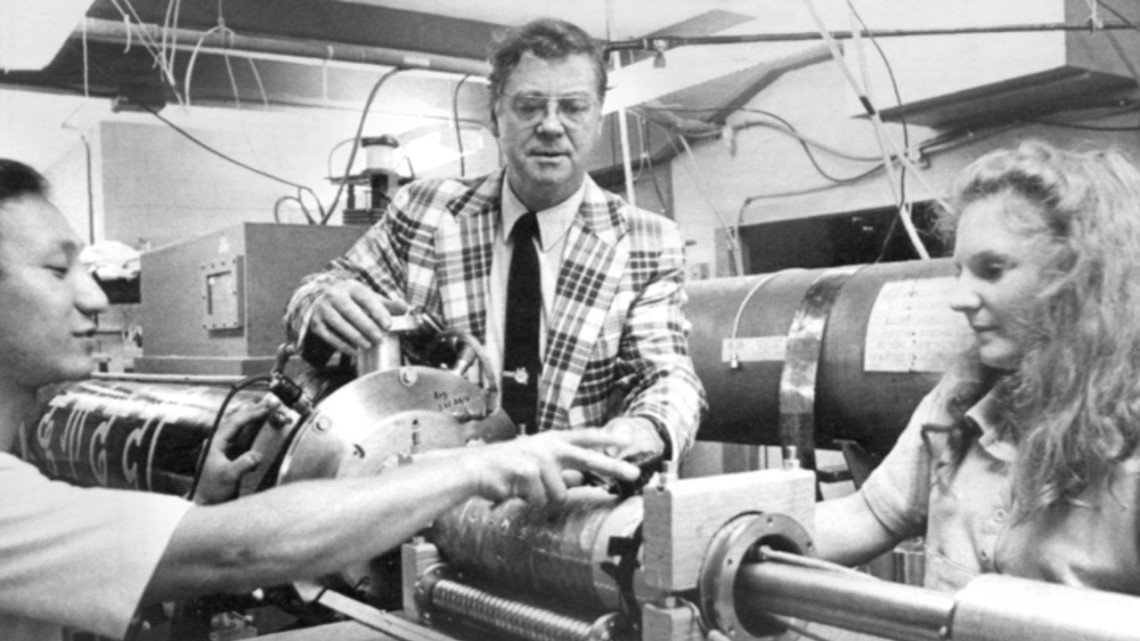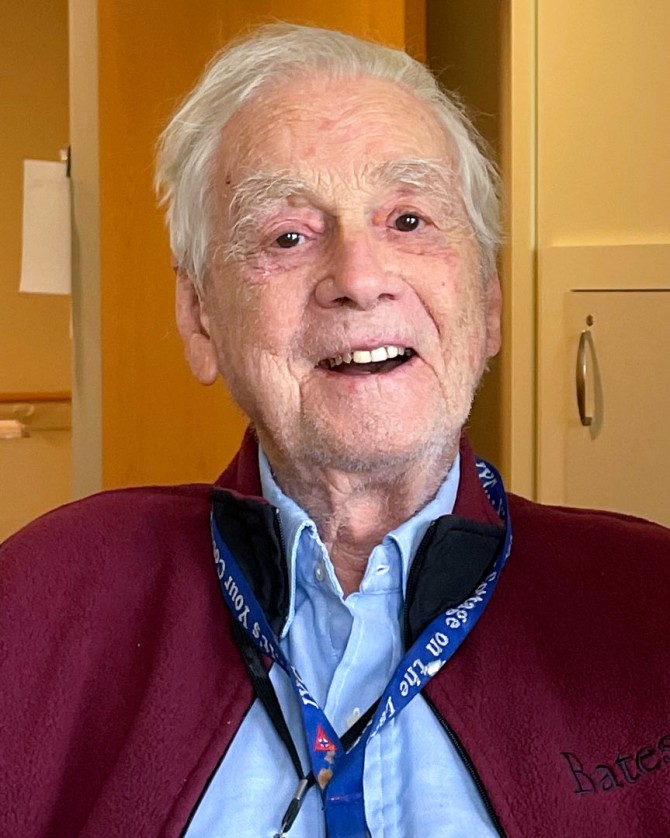
Charles Wharton, professor emeritus of electrical engineering, and two students work with a backward wave oscillator used for research on high-powered microwaves.
Charles Wharton, plasma physicist, dies at 99
By Syl Kacapyr
Charles “Chuck” Benjamin Wharton, professor emeritus of electrical engineering and a distinguished expert in plasma physics, died April 12 in Ithaca, New York. He was 99.
Wharton joined Cornell in 1967 as a professor in what was then the School of Electrical Engineering, where he helped establish the Laboratory of Plasma Studies. Throughout his 25-year career at Cornell, he conducted research in plasma-physics diagnostics as well as in plasma interactions and heating, with applications in controlled thermonuclear fusion, space propulsion, materials processing and other plasma-based technologies.
Wharton began his scientific career after serving in the U.S. Navy during World War II as an electronics technician on the USS McCaffery destroyer, according to a family obituary. He earned his undergraduate and master’s degrees in field emissions from the University of California, Berkeley, where he began work with microwaves and high-energy ion accelerators.
Before coming to Cornell, Wharton worked at what was then the University of California Lawrence Radiation Laboratory at Livermore, and spent a year as an engineer-scientist at the Max Planck Institute for Physics in Munich, Germany. He then served as a staff member of the Experimental Physics Group at General Atomics in San Diego, where he co-authored the book “Plasma Diagnostics with Microwaves” and proved the Landau Damping theory – a crucial concept for understanding how waves travel through plasmas.
Wharton’s distinguished career earned him numerous accolades. In 1973, he received the prestigious Humboldt Prize from the Alexander von Humboldt Foundation and was elected a fellow of the American Physical Society. In 1976, he was elected a fellow of the Institute of Electrical and Electronics Engineering “in recognition of contributions to the understanding of plasmas and to the development of plasma diagnostic techniques.”
After his retirement from Cornell in 1992, Wharton remained active in education, developing hands-on science experiments to inspire children with concepts in the physical sciences.
An avid outdoorsman throughout his life, Wharton was active in the Sierra Club during his early years in California, where he campaigned to save the redwoods. In Ithaca, he was a lifelong member of the Ithaca Yacht Club, where he served as harbor master and enjoyed sailing on Cayuga Lake.
Wharton is survived by his wife, Gloria; his children, Carl, Kristi and Mark; three granddaughters; and two great-granddaughters.
A memorial service celebrating Wharton’s life is planned for July at Kendal at Ithaca.
Syl Kacapyr is associate director of marketing and communications for Cornell Engineering.
Media Contact
Get Cornell news delivered right to your inbox.
Subscribe

